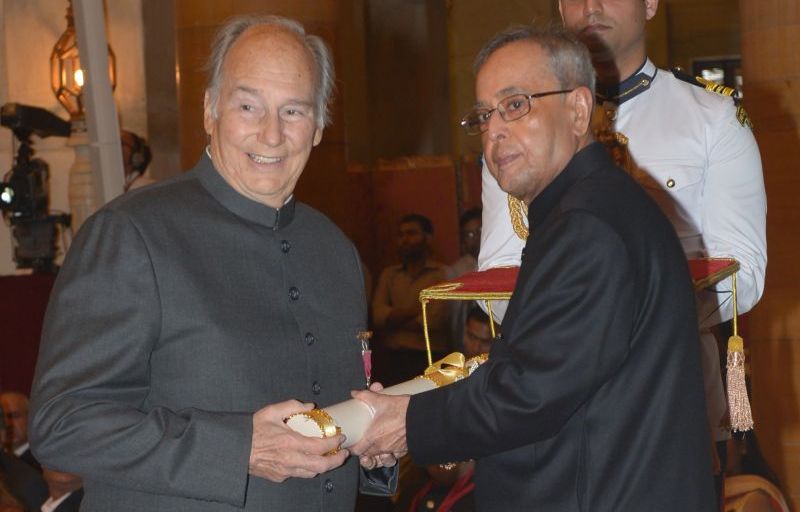In 2015, the Indian government awarded the Padma Vibhushan, one of the country’s highest civilian honours, to a Muslim leader from a western country.
The Aga Khan, whose full title is His Highness Prince Karim Aga Khan IV, is the current Imam of IsmailiMuslims. He has an estimated 15 million followers in more than 25 countries, is a British citizen, and lives in France.
In spite of his foreign status, the Aga Khan has a close relationship with India. It started a 100 years ago when his grandfather, Sir Sultan Mahomed Shah, the previous Aga Khan and a resident of Mumbai, established the first Aga Khan School in Mundra, Gujarat.
Since then the Aga Khans, who have several hundred thousand followers in India, have established numerous social development activities that span several states of India, including Andhra Pradesh, Bihar, Delhi, Gujarat, Madhya Pradesh, Maharashtra, Rajasthan, Telangana and Uttar Pradesh.
Through the global NGO, the Aga Khan Development Network (AKDN) the Aga Khan addresses a spectrum of development issues ranging from cultural restoration to education, financial inclusion to healthcare, agriculture and environment to civil society strengthening. These initiatives include schools and educational centres, a 162-bed multi-specialty acute care hospital in Mumbai, a rural support programme that has benefited over 1.5 million people in six Indian states and the restoration of a World Heritage site in the nation’s capital.
AKDN offers a range of financial services from community-based savings groups to corporate banking to life insurance. These services are used by 17 million Indians each year.
In the saline areas of Gujarat, India, where water is highly contaminated, the Aga Khan Foundation has built 10,000+ roof rainwater harvesting structures to help 40,000 women access potable drinking water.
An integrated block-level sanitation model was initiated in rural Bihar, India. The approach focuses on community-led initiatives for ensuring universal sanitation coverage at the village and block level. The initiative aims to improve access to water and sanitation for marginalised communities across urban and rural India, including helping 100,000 families and 538 schools build toilets. This project contributed to the pledge made by India’s Prime Minister, NarendraModi, to eliminate open defecation by October 2019, and was awarded the FICCI-India Sanitation Coalition prize.
The most visible and much-widely appreciated projects of the AKDN are the cultural initiatives of the Aga Khan Trust for Culture (AKTC).The largest cultural project to date has been the restoration and revitalisation of Humayun’s Tomb, including its gardens.
The beautifully manicured lawns with the majestic red stone and white marble inlaid structure rising up into the sky in the heart of Delhi are testament to the import of this cultural work. The Humayun’s Tomb is a UNESCO World Heritage site, the mausoleum of Mughal Emperor Humayun, and was commissioned by his wife in AD 1569. The AKTC worked with the Indian government to restore the Humayun’s tomb to its former glory.
This initiative has since expanded to social and cultural programmes in the neighbouringNizamuddin area, as well as to Sundar Nursery and a number of monuments in the historic district. In Hyderabad, a project to restore the QutbShahi tombs is also underway.
The Ismaili population is scattered around the world – living in African and Asian countries, as well as the United States, Canada, and Britain. As Imam, the Aga Khan’s responsibilities include interpreting the faith, and looking after the spiritual and material well-being of his followers. This means helping to improve the quality of life of the Ismaili community in the societies where they live, which leads to his work in India as well.
The services provided by the Aga Khan and his network of organisations extend beyond members of his communities. The schools, clinics, and development programmes are open to everyone, with no communal restrictions at all.
In his work, and his speeches, the Aga Khan emphasises his goal of working towards an inclusive world, by supporting progress in underdeveloped regions. He also believes in promoting pluralistic societies, where diversity is embraced. To that end, he works to highlight the advantages of pluralistic communities, through his work in preserving culture, by restoring architecture, music and art from different parts of the world. He has founded a museum showcasing art from the Muslim world, and established a Center for Pluralism in Canada, in his effort to present a positive face of Islam to the world.
In 2018, the Aga Khan celebrates the Diamond Jubilee of his 60 years as the leader of the Ismaili community. As part of the celebrations he is visiting his followers around the world, including his visit to India at the end of February. During the visit he will travel to Delhi to meet with several political leaders, including the Prime Minister, President and Vice President of the country, as well as ministers of the states of Gujarat, Hyderabad and Maharashtra where he will be traveling.
As the Ismailis of India gear up to receive their beloved leader, they are also working to ramp up their involvement in social work. Traditionally, the Aga Khan also commemorates the Jubilee with the initiation of greater social development initiatives. For the current jubilee, his focus includes poverty alleviation, and elderly care initiatives, in addition to his ongoing work in education and promoting pluralism.

